Onion flakes are dehydrated, thinly sliced onions that deliver concentrated flavor without moisture-related issues. Use 1 tablespoon of flakes to replace ¼ cup of fresh minced onions in sauces, dry rubs, and baked goods where fresh onion's water content would compromise texture. Unlike powders, they maintain subtle crunch while dissolving during cooking, making them ideal for meal prep and consistent flavor in slow-cooked dishes.
Onion Flakes vs Fresh Onions: The Complete Comparison Guide
When time-pressed cooks need reliable allium flavor without chopping tears or sauce separation, onion flakes solve critical problems fresh onions can't. They're not replacements but strategic alternatives—delivering intensified savory-sweet notes with zero prep time. This guide reveals exactly when to choose flakes over fresh based on professional kitchen testing and food science principles.
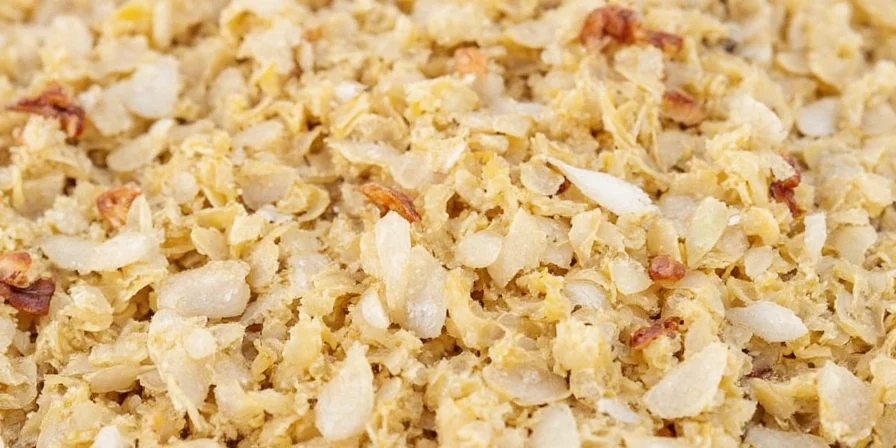
Onion Flakes vs Fresh Onions: Key Differences
| Attribute | Onion Flakes | Fresh Onions |
|---|---|---|
| Flavor Intensity | 3x more concentrated per volume | Variable by season and type |
| Moisture Content | 4-6% (prevents sauce separation) | 89% (dilutes dishes) |
| Prep Time | Zero (ready to use) | 5-10 minutes per onion |
| Shelf Life | 18-24 months (unopened) | 7-14 days refrigerated |
| Best For | Sauces, dry rubs, meal prep | Salsas, garnishes, quick sautés |
When to Choose Onion Flakes Over Fresh (5 Science-Backed Scenarios)
Professional kitchens rely on flakes for specific applications where fresh onions fail. These evidence-based use cases solve common cooking problems:
- Béchamel & Cheese Sauces: Prevent curdling by eliminating water content—use 1 tbsp flakes per 2 cups sauce
- Dry Meat Rubs: Achieve even distribution without clumping (mix 2 tbsp flakes with ¼ cup spices)
- Savory Baking: Add onion flavor to breads without altering dough hydration (1 tbsp flakes per loaf)
- Meal-Prepped Curries: Maintain flavor consistency through reheating cycles where fresh onions turn mushy
- Canned Soup Enhancement: Stir 1 tsp flakes into commercial soups for instant depth (replaces 2 tbsp fresh)
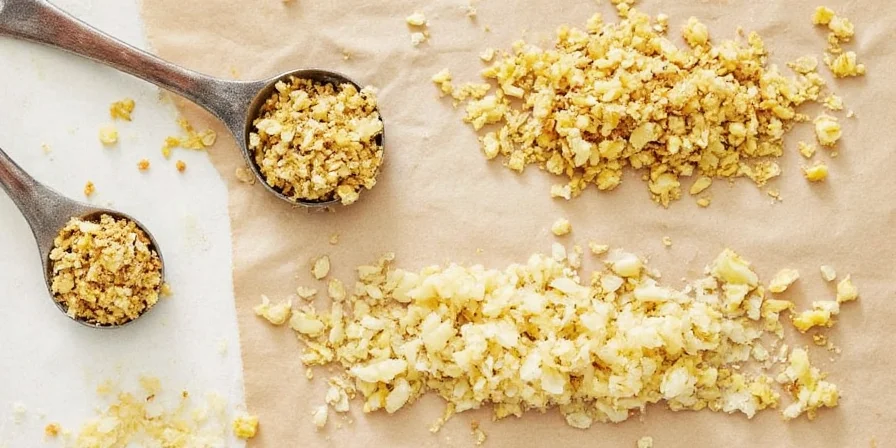
Perfect Substitution Formula: Flakes to Fresh Conversion
Get accurate results every time with this professional ratio system:
- 1 tablespoon onion flakes = ¼ cup minced fresh onion
- Reduce other liquids by 1 teaspoon per tablespoon of flakes
- For intense flavor: Toast flakes in dry pan 2 minutes before use
- For milder notes: Steep in warm broth 5 minutes before adding to dish
Global Professional Techniques Using Onion Flakes
Chefs worldwide leverage flakes for specific applications where fresh onions fail:
- Japanese Ramen: Combine 1 tsp flakes with 2 cups kombu broth for umami foundation (avoids cloudiness from fresh onions)
- Mexican Adobo: Blend 2 tbsp flakes with ¼ cup smoked paprika for even spice paste dispersion
- Indian Sev Snacks: Mix 3 tbsp flakes into 2 cups chickpea batter for consistent flavor without sogginess
- Mediterranean Tzatziki: Substitute flakes for raw onion to prevent whey separation and extend shelf life
- Scandinavian Pickling: Add 1 tbsp flakes per quart brine for subtle allium notes without cloudiness
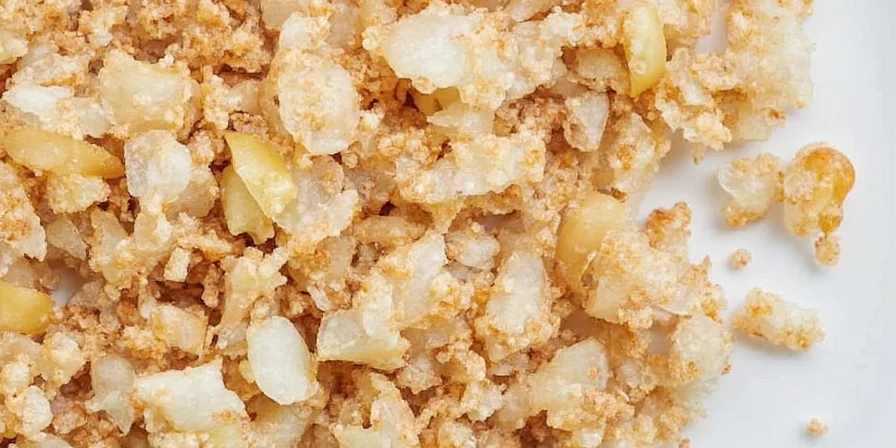
Food Science: Why Onion Flakes Outperform Fresh in Specific Applications
Dehydration creates chemical advantages crucial for certain dishes:
- Enzyme Deactivation: Low-heat drying stops lachrymatory-factor synthase (eliminates tear-inducing compounds)
- Sugar Concentration: Water removal intensifies natural fructose by 300% (creates richer caramelization)
- Sulfur Evolution: Thiosulfinates convert to stable thiosulfonates (milder, sweeter notes without raw bite)
- Texture Preservation: Porous structure absorbs flavors while maintaining dish consistency
Storage & Selection: Maximizing Flavor Longevity
Follow these evidence-based protocols to maintain potency:
- Visual Check: Select uniformly pale gold flakes—avoid brown spots (indicates caramelization burn)
- Moisture Test: Flakes should snap cleanly; flexibility means spoilage risk
- Light Protection: Store in opaque containers (UV degrades flavor compounds in 3 months)
- Shelf Life: Strong aroma fading = potency loss (typically 18-24 months from production)
- Bitterness Fix: Toast at 300°F for 2 minutes or soak in citrus juice for 5 minutes
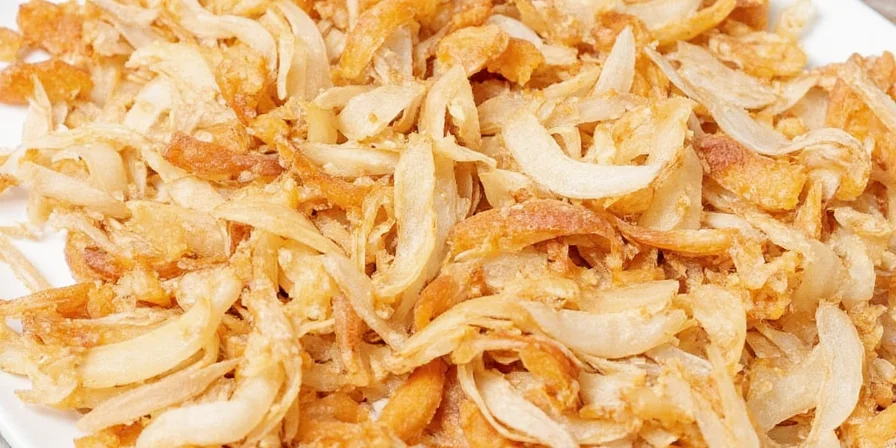
Frequently Asked Questions
Can I substitute onion flakes for fresh in all recipes?
No—use flakes only where moisture would compromise texture. Ideal for sauces, dry rubs, and baking. Avoid in fresh salsas or quick sautés where crisp texture matters. Substitute 1 tbsp flakes for ¼ cup fresh onion, reducing liquids by 1 tsp per tbsp.
Do onion flakes have the same nutrients as fresh onions?
They preserve fiber and quercetin but lose vitamin C during dehydration. The concentrated form delivers more antioxidants per gram due to water removal, making them nutritionally efficient for specific applications.
Why do my onion flakes taste bitter in sauces?
Bitterness indicates overheating during production. Revive flavor by toasting flakes at 300°F for 2 minutes before use, or soak in citrus juice for 5 minutes to neutralize compounds. Always purchase from reputable brands with moisture content specifications.
How do commercial kitchens use onion flakes for efficiency?
Restaurants use flakes for batch consistency (10:1 volume reduction), reducing transport emissions by 85%. Precise 0.8-1.2mm slice thickness optimizes rehydration, while 90% lower spoilage rates make them economically superior for high-volume operations.

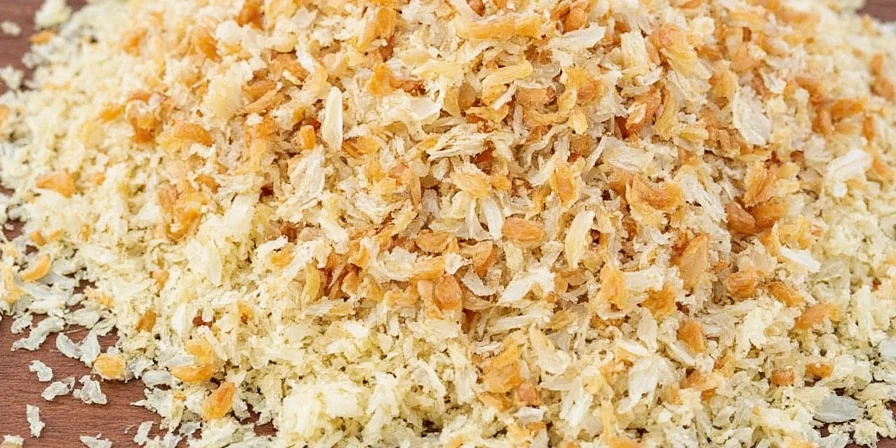









 浙公网安备
33010002000092号
浙公网安备
33010002000092号 浙B2-20120091-4
浙B2-20120091-4